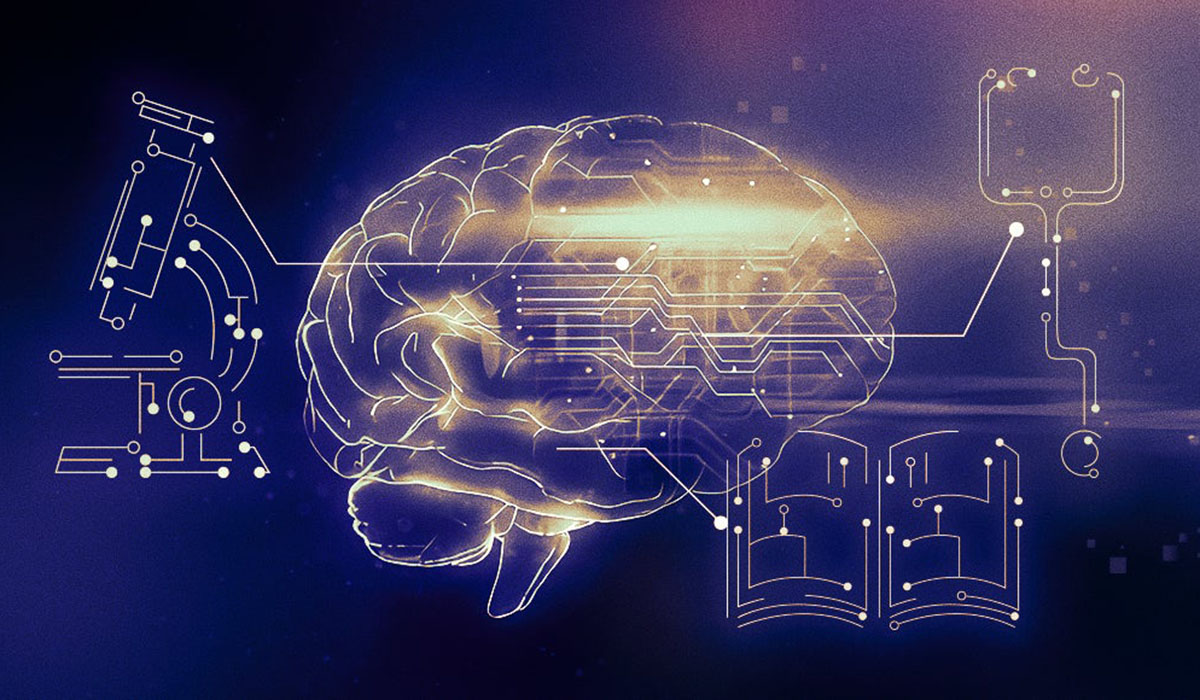2 Minute Read
This week we will look at the main benefits of AI used in the healthcare industry.
Currently Artificial intelligence is being used in healthcare for everything from answering patient questions to assisting with surgeries and developing new pharmaceuticals.
The global artificial intelligence in the healthcare market was valued at USD 16.3 billion in 2022 and is expected to grow at a CAGR of 40.2% to reach USD 173.55 billion by 2029. The healthcare AI market is experiencing a remarkable and significant surge in its growth and acceptance.
Let's look at some of the main benefits of using AI in the healthcare industry.
1. AI makes healthcare operations more efficient
The following are some examples of how AI could be used to benefit staff and patients:
- Virtual Nursing Assistants: AI virtual nurse assistants are being created as AI-powered chatbots, apps and other interfaces. These assistants are used to answer questions about medications, forward reports to doctors and surgeons and help patients schedule a visit with a physician. These routine tasks will help take the work off the hands of clinical staff, who can then spend more time directly on patient care, where human judgment and interaction matter most.
- Administrative Back-end Operations & Workflow: Healthcare workers spend huge amounts on paperwork and administrative tasks. AI and automation will perform many of those mundane tasks, freeing up employee time for other activities and giving them more face-to-face time with patients. For example, generative AI can help clinicians with note-taking and content summarization that can help keep medical records as thorough as possible. AI will also help with accurate coding and sharing of information between departments and billing.
- Medications & Dosages Accurate Recording: AI will help enable the accurate recording of patient medication to avoid errors and be used to help identify how a patient self-administers medications. One example comes from a study in Nature Medicine, which found that up to 70% of patients don’t take insulin as prescribed. An AI-powered tool that sits in the patient’s background (much like a Wi-Fi router) could be used to flag errors in how the patient administers an insulin pen or inhaler.
2. AI can be used to increase healthcare diagnoses efficiency
According to Harvard’s School of Public Health, although it’s early days for this use, using AI to make diagnoses may reduce treatment costs by up to 50% and improve health outcomes by 40%.
One use case example is out of the University of Hawaii, where a research team found that deploying deep learning AI technology can improve breast cancer risk prediction. More research is needed, but the lead researcher pointed out that an AI algorithm can be trained on a much larger set of images than a radiologist—as many as a million or more radiology images. Also, that algorithm can be replicated at no cost except for hardware.
An MIT group developed an ML algorithm to determine when a human expert is needed. In some instances, such as identifying cardiomegaly in chest X-rays, they found that a hybrid human-AI model produced the best results.
Another published study found that AI recognized skin cancer better than experienced doctors. US, German and French researchers used deep learning on more than 100,000 images to identify skin cancer. Comparing the results of AI to those of 58 international dermatologists, they found AI did better.
3. AI will help in preventive medicine and improve healthcare user experiences
One of AI's biggest potential benefits is to help people stay healthy so they don't need a doctor, or at least not as often. The use of AI and the Internet of Medical Things (IoMT) in consumer health applications is already helping people.
Technology applications and apps encourage healthier behaviour in individuals and help with the proactive management of a healthy lifestyle. It puts consumers in control of health and well-being.
AI technologies like natural language processing (NLP), predictive analytics and speech recognition could help healthcare providers have more effective communication with patients. AI could, for instance, deliver more specific information about a patient’s treatment options, allowing the healthcare provider to have more meaningful conversations with the patient for shared decision-making.
4. AI can help connect disparate healthcare data
One benefit the use of AI brings to health systems is making gathering and sharing information easier. AI can help providers keep track of patient data more efficiently.
One example is diabetes. According to the Centers for Disease Control and Prevention, 10% of the US population has diabetes. Patients can now use wearable and other monitoring devices that provide feedback about their glucose levels to themselves and their medical team. AI can help providers gather that information, store and analyze it, and provide data-driven insights from vast numbers of people. Leveraging this information can help healthcare professionals determine how to better treat and manage diseases.
AI also has the potential to help humans predict toxicity, bioactivity, and other characteristics of molecules or create previously unknown drug molecules from scratch.
*Report from IBM Education, July 11, 2023
For more information on how you can build a responsible AI framework for your brand or project, talk to us today.

